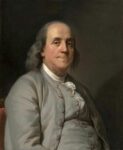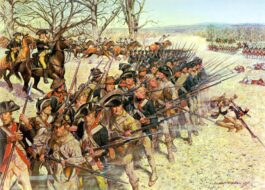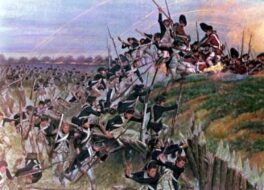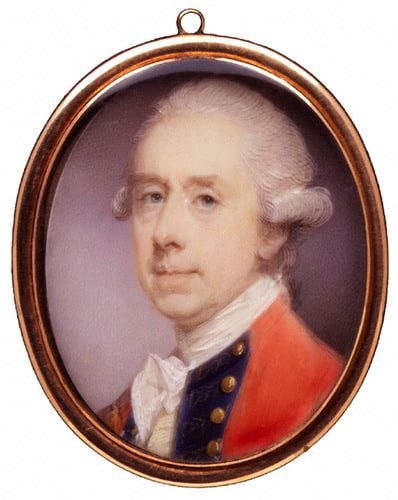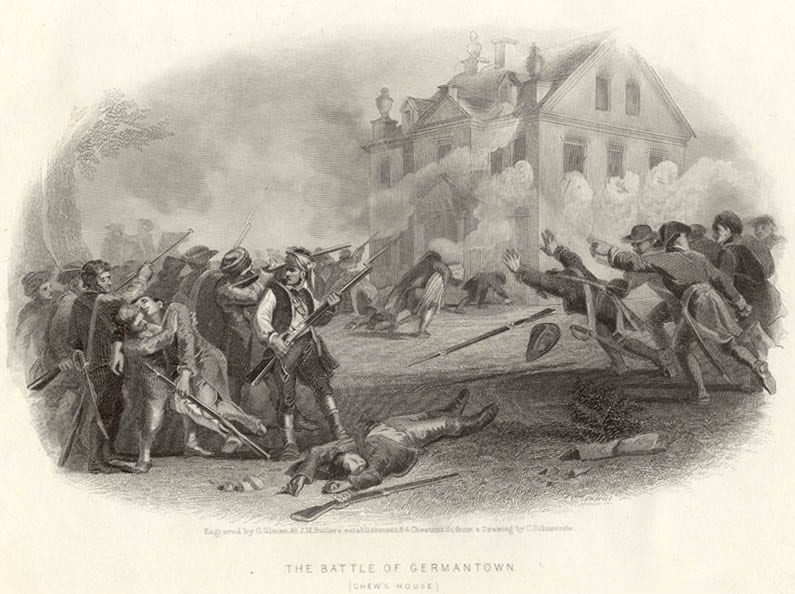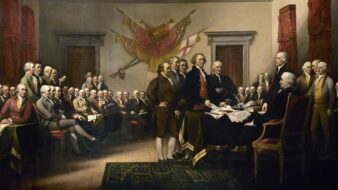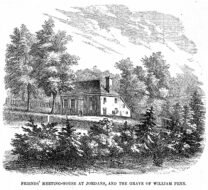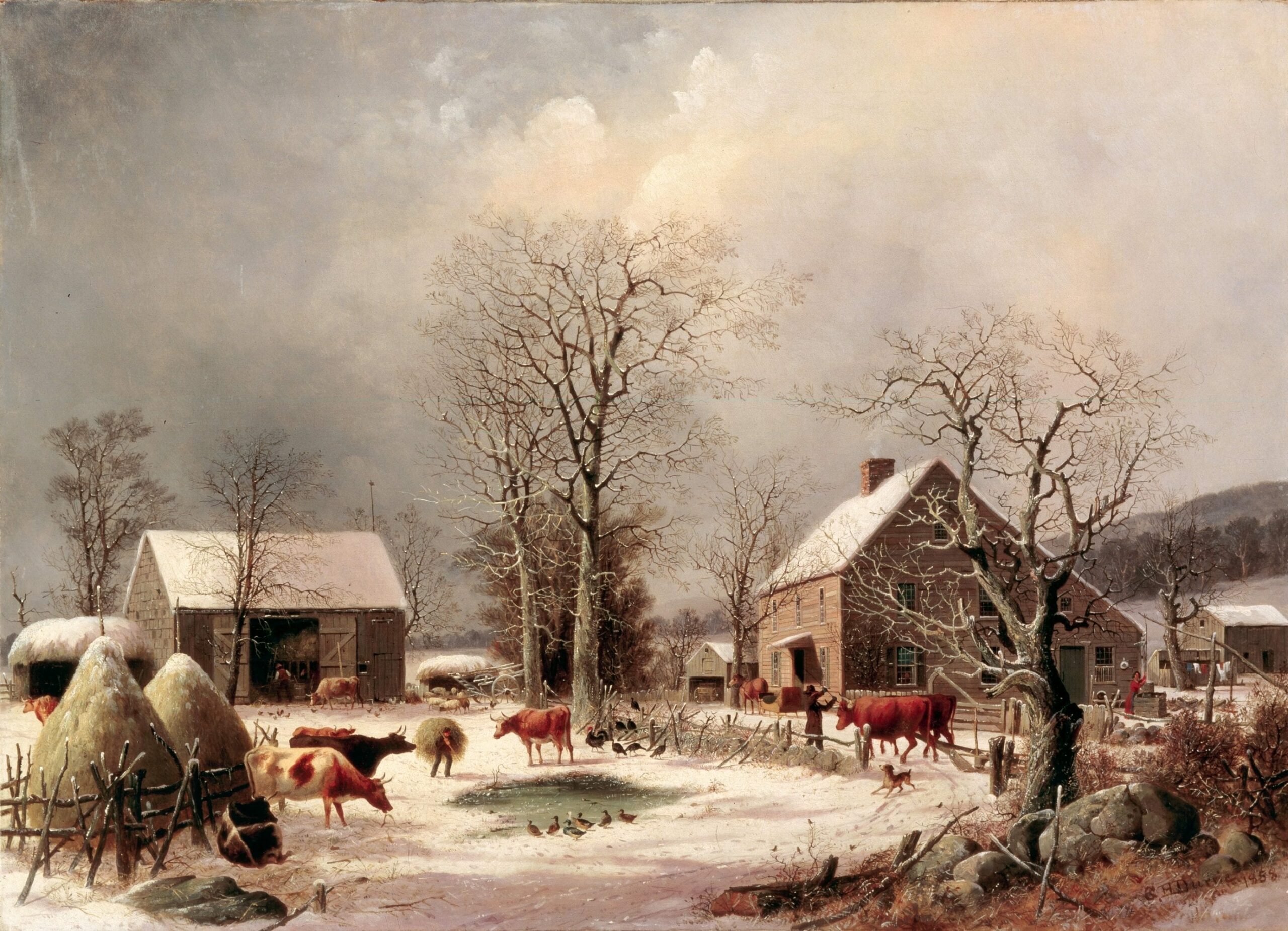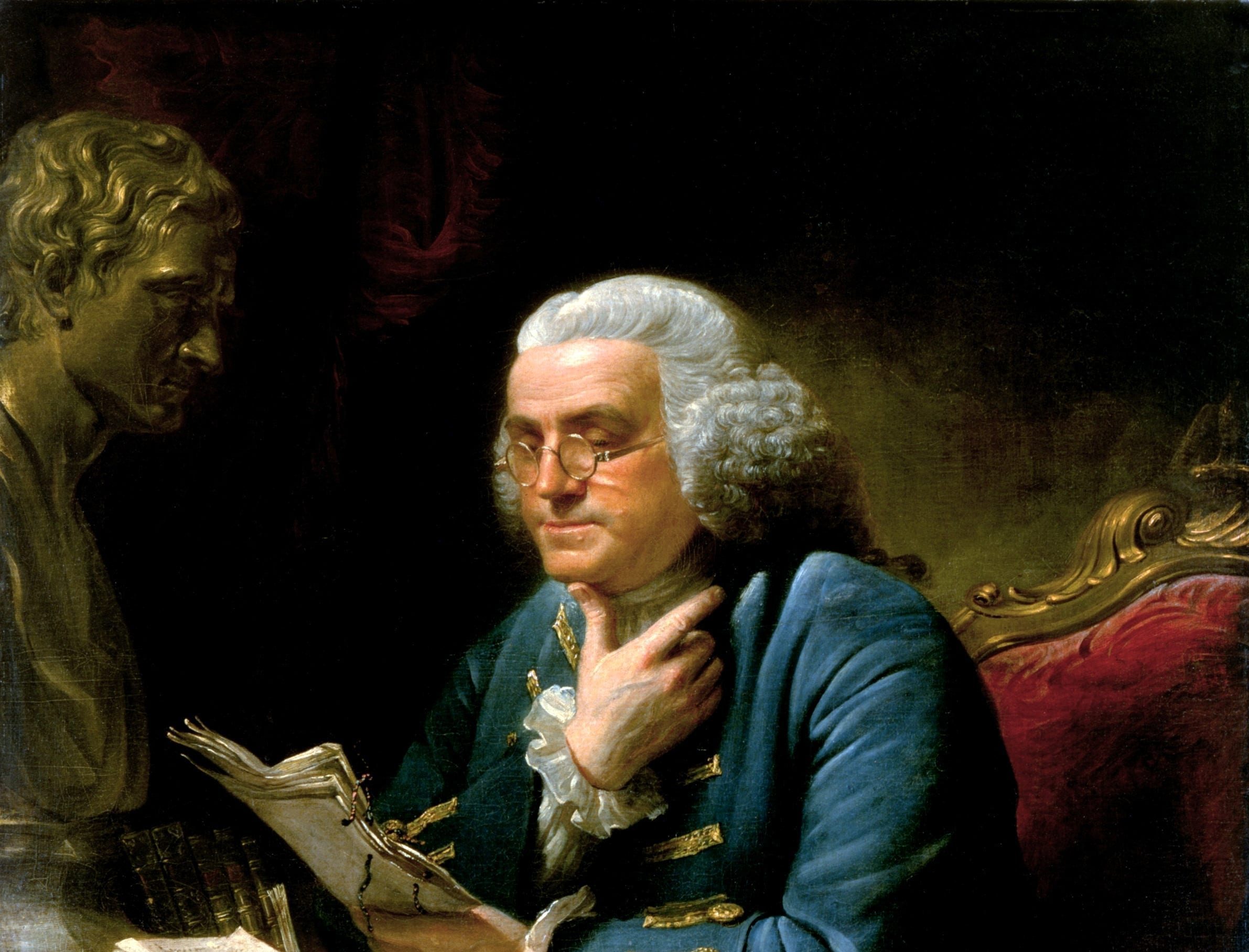
In CONGRESS.
June 13, 1778.
An express arrived with a letter of the 11th, from General Washington, which was read, and a packet in which it was inclosed, together with other papers, a letter signed ’Carlisle, William Eden, G. Johnstone,’ dated ’Philadelphia, June 9, 1778,’ and directed ’to his excellency, Henry Laurens, the president, and other members of the congress;’ which letter was read to the words, ’insidious interposition of a power, which has from the first settlement of these colonies been actuated with enmity to us both; and notwithstanding the pretended date or form of the French offers,’ inclusive; whereupon the reading was interrupted, and a motion was made not to proceed farther, because of the offensive language against his most christian majesty. Debates arising thereon,
Ordered, that the consideration of the motion be postponed, and congress adjourned till ten o’clock on Monday June 16.
Congress resumed the consideration of the motion respecting the letter from the commissioners of the king of Great Britain, which being postponed,
A motion was made, ’That the letter from the commissioners of the king of Great Britain lie on the table.’ Passed in the negative.
On the motion—Resolved, ’That the letter and the papers accompanying it be read.’ Whereupon a letter of the 9th, and one dated June, 1778, both signed, ’Carlisle, William Eden, G. Johnstone,’ and a paper indorsed, ’Copy of the commission for restoring peace, &c. to the Earl of Carlisle, Lord Viscount Howe, Sir William Howe, or in his absence Sir Henry Clinton, William Eden, and George Johnstone,’ were read, and also three acts of the British parliament, one intitled, ’An act for repealing an act passed in the 14th year of his present Majesty’s reign, intitled, an act for the better regulating the government of the province of Massachusett’s-bay, in New-England,’ the other two the same as the bills already published. The letters are as follow:
To his excellency Henry Laurens, the President, and other Members of Congress.
Gentlemen, With an earnest desire to stop the further effusion of blood and the calamities of war, we communicate to you, with the least possible delay after our arrival in this city, a copy of the commission with which his Majesty is pleased to honour us, as also the acts of parliament on which it is founded; and at the same time that we assure you of our most earnest desire to re-establish, on the basis of equal freedom and mutual {safety, the tranquillity of this once happy empire, you will observe; that we are vested with powers equal to the purpose, and such as are even unprecedented in the annals of our history.
In the present state of our affairs, though fraught with subjects of mutual regret, all parties may draw some degree of consolation, and even an auspicious hope from the recollection that cordial reconciliation and affection have, in our own and other empires, succeeded to the contentions and temporary divisions not less violent than those we now experience.
We wish not to recall subjects which are now no longer in controversy, and will reserve to a proper time of discussion both the hopes of mutual benefit, and the consideration of evils that may naturally contribute to determine your resolutions as well as our own on this important occasion.
The acts of parliament which we transmit to you, having passed with singular unanimity, will sufficiently evince the disposition of Great Britain, and shew that the terms of agreement, in contemplation with his majesty and with his parliament, are such as come up to every wish that North America, either in the hour of temperate deliberation, or of the utmost apprehension of danger to liberty, has expressed.
More effectually to demonstrate our good intentions, we think proper to declare, even in this our first communication, that we are disposed to concur in every satisfactory and just arrangement towards the following among other purposes:
’To consent to a cessation of hostilities, both by sea and land. To restore free intercourse, to revive mutual affection, and restore the common benefits of naturalisation through the several parts of this empire. To extend every freedom to trade that our respective interests can require. To agree that no military force shall be kept up in the different states of North America, without the consent of the general congress, or particular assemblies. To concur in measures calculated to discharge the debts of America, and raise the value and credit of the paper circulation.
’To perpetuate our union, by a reciprocal deputation of an agent or agents from the different states, who shall have the privilege of a seat and voice in the parliament of Great Britain; or, if sent from Britain, to have in that case a seat and voice in the assemblies of the different states to which they may be deputed respectively, in order to attend to the several interests of those by whom they are deputed.
’In short, to establish the power of the respective legislatures in each particular state, to settle its revenue, its civil and military establishment, and to exercise a perfect freedom of legislation and internal government, so that the British states throughout North America, acting with us in peace and war, under our common sovereign, may have the irrevocable enjoyment of every privilege that is short of a total separation of interest, or consistent with that union of force, on which the safety of our common religion and liberty depends.
’In our anxiety for preserving those sacred and essential interests, we cannot help taking notice of the insidious interposition of a power, which has from the first settlement of these colonies been actuated with enmity to us both. And notwithstanding the pretended date, or present form, of the French offers to America, yet it is notorious, that these were made in consequence of the plans of accommodation previously concerted in Great Britain, and with a view to prevent our reconciliation, and to prolong this destructive war.
’But we trust that the inhabitants of North-America, connected with us by the nearest ties of consanguinity, speaking the same language, interested in the preservation of similar institutions, remembering the former happy intercourse of good offices, and forgetting recent animosities, will shrink from the thought of becoming an accession of force to our late mutual enemy, and will prefer a firm, free, and perpetual coalition with the parent state to an insincere and unnatural foreign alliance.
’This dispatch will be delivered to you by Dr. Ferguson, the secretary to his majesty’s commission; and, for further explanation and discussion of every subject of difference, we desire to meet with you either collectively or by deputation, at New-York, Philadelphia, York-Town, or such other place as you may propose. We think it right, however, to apprize you, that his majesty’s instructions, as well as our own desire, to remove from the immediate seat of war, in the active operations of which we cannot take any part, may induce us speedily to remove to New-York; but the commander in chief of his majesty’s land-forces, who is joined with us in this commission, will, if it should become eligible, either concur with us in a suspension of hostilities, or will furnish all necessary pass-ports and safe conduct, to facilitate our meeting, and we shall of course expect the same of you.
’If after the time that may be necessary to consider of this communication, and transmit your answer, the horrors and devastations of war should continue, we call God and the world to witness, that the evils which must follow are not to be imputed to Great Britain; and we cannot without the most real sorrow anticipate the prospect of calamities which we feel the most ardent desire to prevent. We are, with perfect respect; Gentlemen, your most obedient and most humble servants,
To his Excellency Henry Laurens, President, and other Members of Congress.
Gentlemen, The dispatch inclosed with this, was carried this morning to the nearest post of General Washington’s army by Dr. Ferguson, Secretary to his Majesty’s commission for restoring peace, &c. but he, not finding a passport, has returned to this place. In order to avoid every unnecessary delay, we now again send it by the ordinary conveyance of your military posts; as soon as the passport arrives, Dr. Ferguson shall wait upon you according to our first arrangement. We are, with perfect respect, gentlemen, your most obedient and most humble servants,
Ordered, that they be referred to a committee of five.
Eodem Die, P. M. The committee to whom were referred the letters and papers from the Earl of Carlisle, &c. Commissioners from the King of Great Britain, reported the draft of a letter, which was read.
Resolved, that the consideration thereof be postponed till to-morrow.
June 17th, 1778. Congress resumed the consideration of the draft of the letter, in answer to the letter and papers received from the Earl of Carlisle, &c. Commissioners from the King of Great Britain, which was unanimously agreed to, and is as follows:
To their Excellencies the Right Hon. the Earl of Carlisle,
William Eden, and George Johnstone, Esqrs. Commissioners from his Britannic Majesty, Philadelphia.
I have received the letter from your Excellencies of the 9th instant, with the inclosures, and laid them before Congress. Nothing but an earnest desire to spare the farther effusion of human blood could have induced them to read a paper, containing expressions so disrespectful to his Most Christian Majesty, the good and great ally of these states, or to consider propositions so derogatory to the honour of an independent nation.
’The acts of the British parliament, the commission from your Sovereign, and your letter, suppose the people of these states to be subjects of the crown of Great Britain, and are founded on an idea of dependence, which is utterly inadmissible.
’I am further directed to inform your Excellencies, that Congress are inclined to peace, notwithstanding the unjust claims from which this war originated, and the savage manner in which it hath been conducted; they will therefore be contented to enter upon a consideration of a treaty of peace and commerce, not inconsistent with treaties already subsisting, when the King of Great Britain shall demonstrate a sincere disposition for that purpose. The only solid proof of this disposition will be an explicit acknowledgement of the independence of these states, or the withdrawing his fleets and armies. I have the honour to be, your Excellencies most obedient and humble servant,
York-Town, July 17, 1778.
Resolved unanimously, that Congress approve the conduct of General Washington, in refusing a passport to Dr. Ferguson. Published by order of Congress.

Conversation-based seminars for collegial PD, one-day and multi-day seminars, graduate credit seminars (MA degree), online and in-person.
